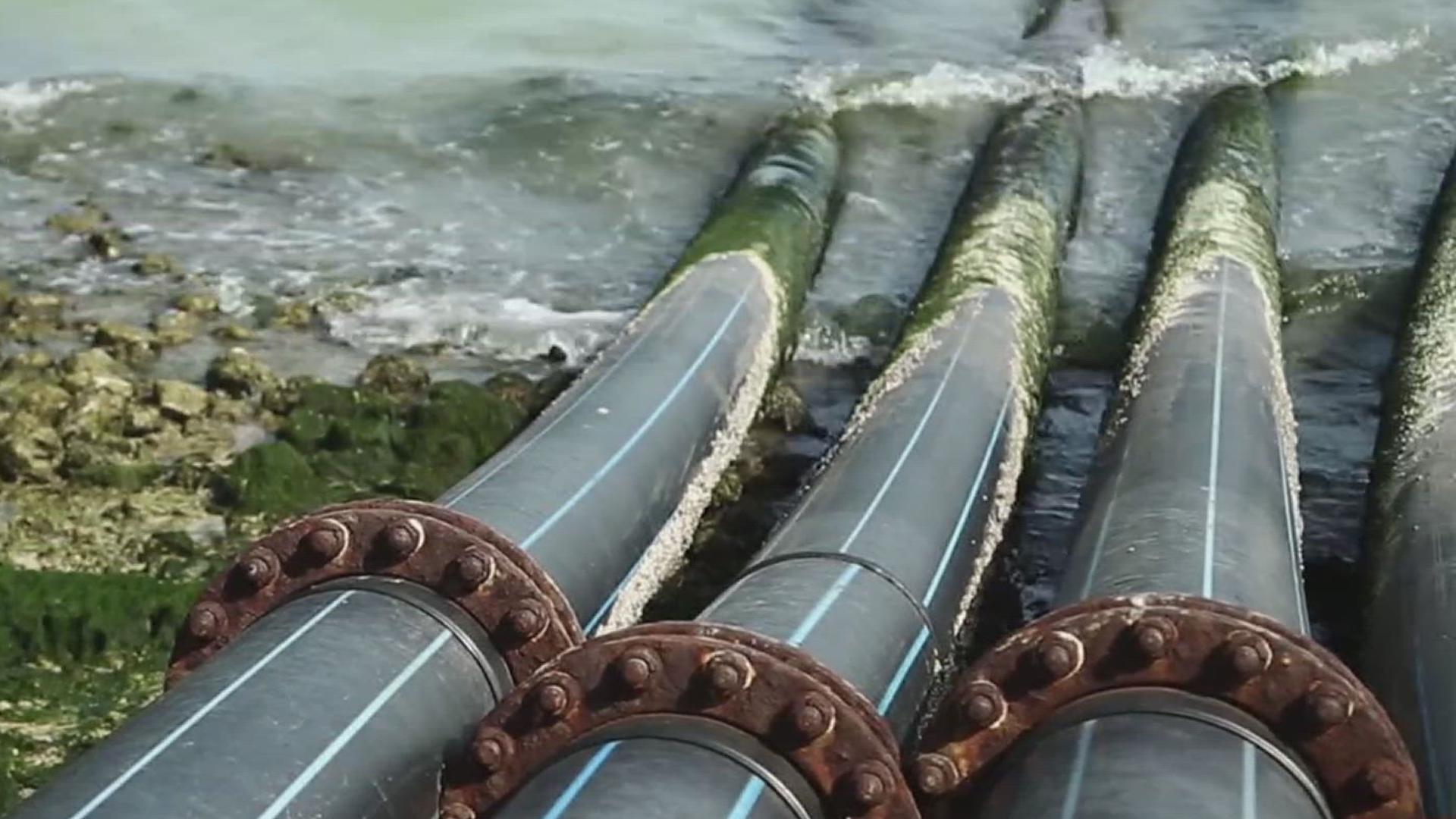CORPUS CHRISTI, Texas — City Manager Peter Zanoni told 3NEWS that city leaders are considering possibly increasing the size of the Inner Harbor Desalination Plant.
"We're also talking now, we hadn't talked about this in the past, but how can we scale this plant up to produce even more than 30 million [gallons per day]. It could even be double or up to 75 million," he said.
Right now, the City is moving forward on building the nearly $800 million facility even though it's still waiting on final approval from the state and federal government.
Three companies are bidding to do that work. Behind closed doors at the airport's offices is where a selection committee listened to the third and final pitch from one of those companies on Wednesday.
The winner is expected to be announced by Oct 8.
Possibly doubling the size of the project means a discharge pipeline would have to be built out to the Gulf.
"So that does include having a discharge pipeline," Zanoni said. "It's only 25 miles from the Inner Harbor to the Gulf of Mexico, and so we could discharge all the water that's just discharged back, and that would be discharged back, in the ship channel into a pipeline system that would discharge it into the Gulf of Mexico. Of course, we'd have to get permits still for that."
Councilman Jim Klein has been a vocal critic of the desal plan but welcomed the news that a pipeline would be a part of the project and take that brine far offshore.
"Sure, I think it would be better if they piped it out into the Gulf of Mexico because you wouldn't have to, it would not imperil Corpus Christi Bay," he said.
However, the councilman is still worried about the cost of doubling the size of the plant.
"You know, San Diego, California adopted desalination, the Carlsbad plant out there and they saw their water rates triple. I don't want that here for Corpus Christi," Klein said.
The city manager understands the cost concerns but feels confident the state will put a huge amount of money into the project. That after a recent meeting between city officials and state senators including Senator Charles Perry who chairs the committee on water.
"So additional state funding and we're talking grants, non-repayable grants, additional state funding or funding from the Port of Corpus Christi, funding from other rate payers, large-volume rate payers," Zanoni said.

